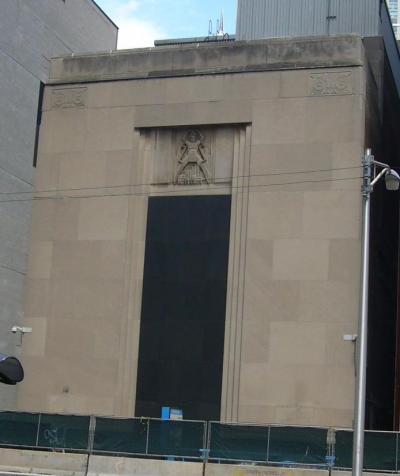Since earliest civilizations, humans have recognized that food is a product of farmland (and, yes, pastureland, fisheries, etc) and have managed to cultivate enough land to feed themselves. Yet today we routinely convert farmland to urban use. American Farmland Trust (AFT) seek to ensure continued agricultural use of some land by buying development rights from farmers, and try to make farms more viable by facilitating community supported agriculture. The geoist fiscal reform provides an alternative way to encourage more conservative and productive use of all land. With additional material from YES! magazine about the slow food revolution, this presentation by HGS instructor Bob Jene suggests that an alliance between AFT and geoists might benefit both.
You are welcome to attend the first session, on Wednesday May 7 6PM, at no charge and without committing to enroll. Instructor Bob Jene will provide an overview of and introduction to the course. At the conclusion you may choose to enroll ($25 fee), or pass up this opportunity (There will be another chance next term, and more thereafter.) More about Progress & Poverty
You are welcome to attend the first session, on Wednesday May 7 6PM, at no charge and without committing to enroll. Instructor Bob Jene will provide an overview of and introduction to the course. At the conclusion you may choose to enroll ($25 fee), or pass up this opportunity (There will be another chance next term, and more thereafter.) More about Progress & Poverty
Guided by HGS instructor Bob Jene, this tour starts with a look at the City of Chicago amenities on the lakefront in Grant Park, and their effect on land values in neighboring private properties especially along Prairie and Indiana Avenues south of Roosevelt. This is the museum campus area with a mixed style of housing. We continue down to the Central Station Area where there are some vintage mansions on Prairie Avenue. We will stop to look at assessor’s data on the value of units, properties and parking spaces and how they relate to location.
You are welcome to attend the first session, on Wednesday May 7 6PM, at no charge and without committing to enroll. Instructor Bob Jene will provide an overview of and introduction to the course. At the conclusion you may choose to enroll ($25 fee), or pass up this opportunity (There will be another chance next term, and more thereafter.) More about Progress & Poverty
You are welcome to attend the first session, on Wednesday May 7 6PM, at no charge and without committing to enroll. Instructor Bob Jene will provide an overview of and introduction to the course. At the conclusion you may choose to enroll ($25 fee), or pass up this opportunity (There will be another chance next term, and more thereafter.) More about Progress & Poverty
You are welcome to attend the first session, on Wednesday May 7 6PM, at no charge and without committing to enroll. Instructor Bob Jene will provide an overview of and introduction to the course. At the conclusion you may choose to enroll ($25 fee), or pass up this opportunity (There will be another chance next term, and more thereafter.) More about Progress & Poverty
You are welcome to attend the first session, on Wednesday May 7 6PM, at no charge and without committing to enroll. Instructor Bob Jene will provide an overview of and introduction to the course. At the conclusion you may choose to enroll ($25 fee), or pass up this opportunity (There will be another chance next term, and more thereafter.) More about Progress & Poverty

Originating as a field trip for students completing our Progress & Poverty course, this stroll thru downtown Chicago examines some of the ways that average people, and the community as a whole, are deprived of their just earnings. Among other things we’ll see who benefits from the expensive infrastructure and “economic development” projects, how Thomas Jefferson wanted Chicago to fund its public schools, what happens when a well-located building burns down, and how land speculators get productive workers to pay their taxes. Expect to walk about 2 km, maybe we’ll stop for snacks (individual settlement) along the way.
A $10 donation is requested from those who are not recent or current HGS students or donors, but nobody will be excluded due to lack of funds. You can make your donation by credit card here, or bring cash or a check.
Bob Jene will examine the American Monetary Institute’s American Monetary Act, a proposed amendment to the Constitution, and compare it with Henry George’s ideas on money. Steve Zarlenga’s speech in which he shows George’s ideas on money coincide with AMI’s will also be examined and discussed. It will boil down to which is more important, Henry George’s proposed fiscal reform or Zarlenga’s monetary reform.
